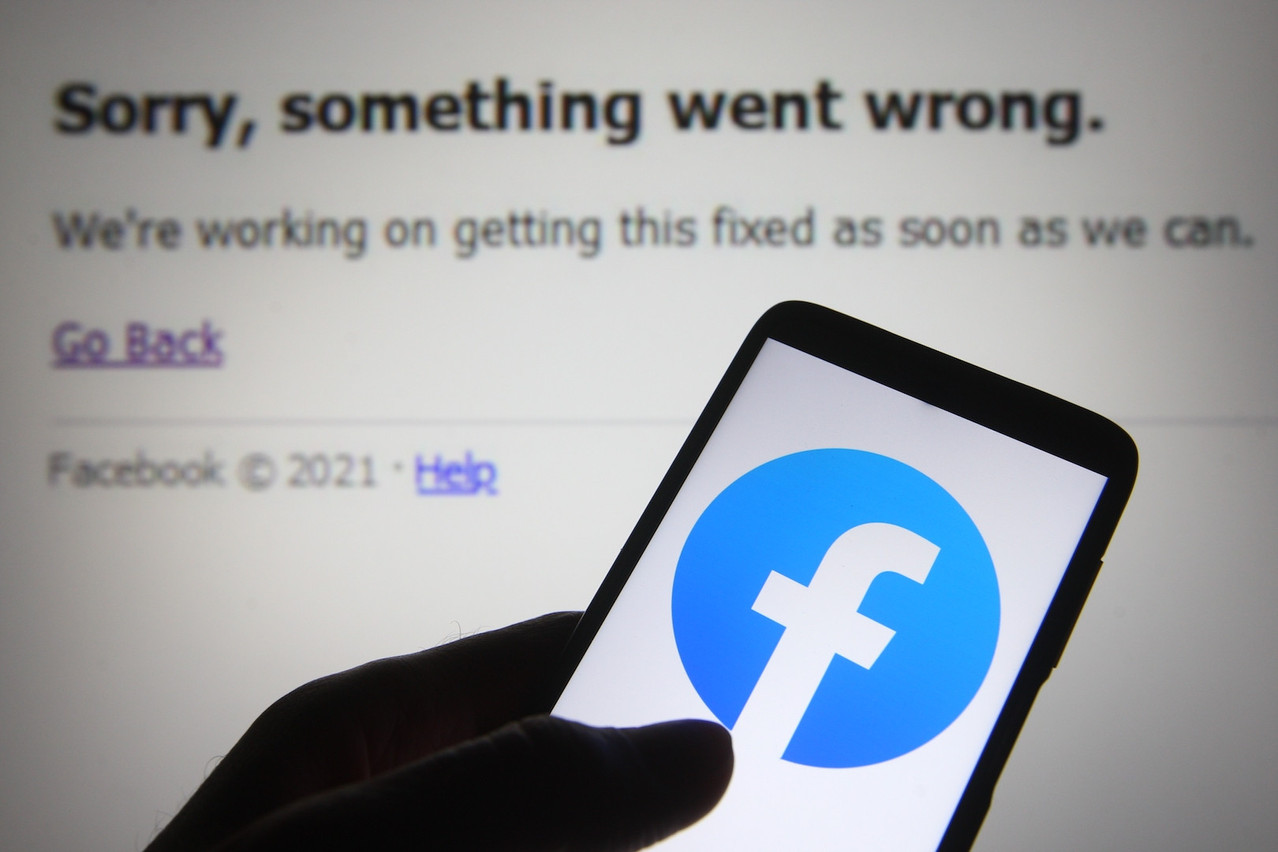Albeit not their first breakdown, this issue, which also affected Luxembourg, could be one of the longer-lasting ones.
Longer breakdowns are relatively rare for Facebook, and when they do occur, one might want to contact their friends to confirm it. But how do you do that, when your main communication platforms are all owned and managed by the same company? That’s right, you reload your apps several times before going on Twitter and commenting on it, as have the authors of 814,000 #Facebookdown tweets (and counting) over the hours following the initial outage. This vast and sudden migration ironically threatened to bring down Twitter’s interface too. Unphased as ever, Twitter’s official account humorously reacted to the news by tweeting, “hello literally everyone”.
Though the exact cause of the Facebook-wide outage has not been revealed, the company’s CTO Mike Schroepfer has given a vague reassurance in a tweet shortly before 10 PM: “*Sincere* apologies to everyone impacted by outages of Facebook powered services right now. We are experiencing networking issues and teams are working as fast as possible to debug and restore as fast as possible.” Previous breakdowns had taken place on June 10 and April 8, with a major breakdown lasting 24 hours back in 2019, as recalled by the New York Times.
Alex Hern, technology editor at the Guardian, explained what had happened in layman’s terms in an excellent Twitter thread.
Basically, because “Facebook runs EVERYTHING through Facebook”, Hern writes, when it accidentally did a protocol update that affected all its servers, they were “booted off the internet” and so was the company’s ability to do anything to fix the problem. Staff couldn’t even access the smart door to the building that houses the servers, or the message service to the head of physical security to get them to attend the scene and open the doors manually.
A bad start to the week
The worldwide technical bug occurred only hours after another major news story featuring Facebook: earlier that day, former Facebook employee and whistle-blower Frances Haugen called out Facebook in an interview with CBS, for knowingly putting profit before the wellbeing of its users and the public, as the Guardian reports. Leaking thousands of compromising documents, Haugen argued that Facebook willingly manipulated content to generate more profit, at the detriment of factual information and its users’ mental health.
Following this and the technical breakdown of the three Facebook-owned apps, the company saw its shares crash on Monday, indicating a bad start into the 4th quarter of the year.
Rethinking communication
Amidst the numerous jokes about different types of social media users and the playful mockery of Facebook by different large brands, a serious concern shines through: what happens if such surfaces shut down indefinitely? While some question the future of Instagram influencers, others express concerns about promoting their brands without relying on these free and widely accessible tools. Edward Snowden commented on the issue in a series of tweets: “Facebook and Instagram go mysteriously offline and, for one shining day, the world becomes a healthier place. “ The famous whistle-blower goes on to explore the risks of a corporate monopoly over social media and promotes other apps such as Signal as an alternative to WhatsApp.
Ultimately, this new instalment of Facebook’s recent string of misfortunes proves how dependent both the professional and private life of any person is impacted by social media. As British investigative journalist Carole Cadwalladr, who exposed the Facebook–Cambridge Analytica data scandal, told MSNBC; this was a day when “a lot of people, you know, discovered that this was something they could do without…maybe there is going to a longer-term behaviour change because of that.”
Additional reporting by Duncan Roberts
